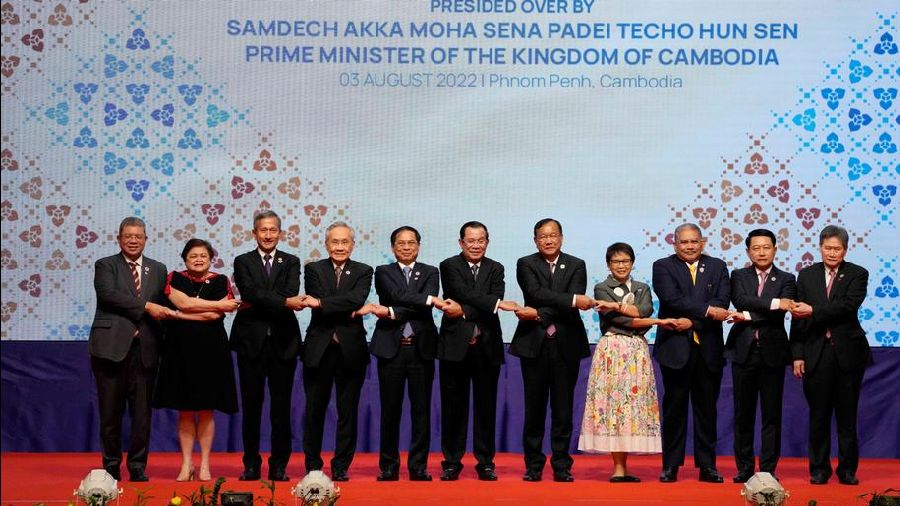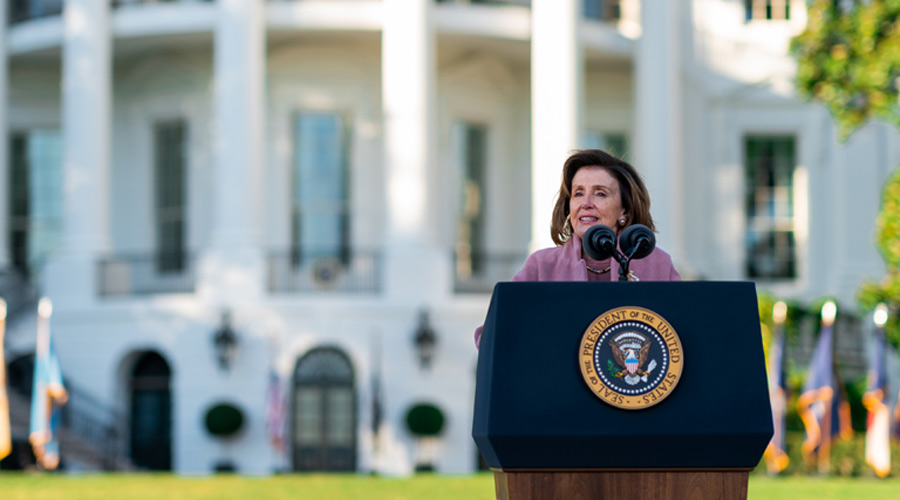Top Southeast Asian diplomats met in Cambodia's capital city of Phnom Penh on Wednesday to intensify efforts to stop the escalating violence in Myanmar and address other issues of regional importance.
As the Association of Southeast Asian Nations (ASEAN) moves to push Myanmar to adhere to a five-point peace "consensus" agreed to last year, the bloc condemned the recent execution of four democracy activists by the ruling military junta.
"If more prisoners are executed, we will be forced to rethink...our role vis a vis ASEAN's five-point consensus," said Cambodian Prime Minister Hun Sen, who currently chairs the bloc.
What is ASEAN's five-point consensus on Myanmar?
The five-point consensus focuses on an immediate end to violence in Myanmar; dialogue among all parties concerned; the appointment of a special envoy; provision of humanitarian assistance by ASEAN; and a visit by the bloc's special envoy to Myanmar to meet with all parties.
Despite agreeing to the consensus, the ruling junta has failed to abide by any of the provisions laid out and has continued its brutal crackdown on resistance unabated, according to Human Rights Watch. In April, the NGO said Southeast Asian governments should urgently revamp their response to the "atrocities" carried out by the military.
Nevertheless, Hun Sen said that while the consensus had "not advanced to everyone's wishes," some progress had been made in providing humanitarian aid. However, the current situation had "changed dramatically" after Myanmar's government last month carried out its first executions in decades, hanging a former National League for Democracy lawmaker, a democracy activist and two men accused of violence.
Myanmar military government not attending
Last week, Myanmar's military defended the execution as "justice for the people" despite widespread international condemnation. The military said the activists were executed for aiding "terror acts" by a civilian resistance movement.
Myanmar will be conspicuous by its absence in this week's ASEAN meetings after the junta refused to send a non-junta representative. The member state's military government has been barred from attending the bloc's meetings since late last year over a lack of progress in implementing the peace plan.
Pelosi's visit to Taiwan
Another topic expected to dominate the ASEAN meeting this week is US House Speaker Nancy Pelosi's visit to Taiwan, the first by any high-ranking US official in decades.
As China warns of "targeted military actions" in response to Pelosi visiting the self-ruled island that Beijing claims as part of its territory, Chinese Foreign Minister Wang Yi and the US top diplomat Antony Blinken are both flying into the Cambodian capital this week.
In addition to Wang and Blinken, Russia's Minister of Foreign Affairs Sergey Lavrov is also set to make an appearance at the ASEAN meeting.
Notably, Lavrov made a stop in Myanmar, where he praised the military for "stabilizing" the country, before attending meetings with his ASEAN counterparts later this week.
Unprecedented times as ASEAN deals with 'so many perils'
"ASEAN has to deal with challenges of different types and levels but never before, never like this year, have we been confronted at the same time with so many perils for the region and the world at large," Cambodia's Foreign Minister Prak Sokhonn said ahead of the meetings.
This is the first in-person meeting of the ASEAN foreign ministers since the outbreak of the COVID-19 pandemic, which left weakened economies and complicated diplomacy in its wake. It comes at a time when tensions run high between the US and China, and the world grapples with increases in food and energy prices after Russia's invasion of Ukraine.











